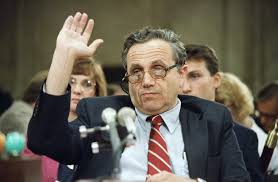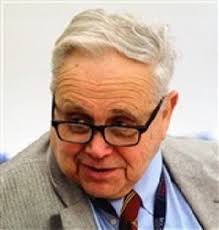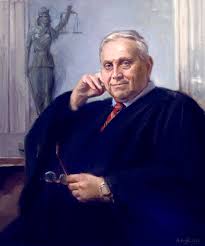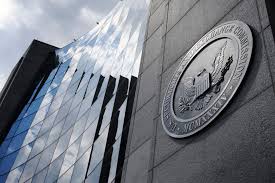A Personal Tribute to Judge Stanley Sporkin (Part I of II)

Judge Stanley Sporkin was a mentor, a professional colleague and a friend. I admired Judge Sporkin, respected his commitment to integrity and valued our professional collaboration and personal friendship.
Judge Stanley Sporkin died on March 23, 2020. He was 88 years old. I am compelled to write about my friend. I will miss him.
Judge Sporkin’s reputation for fairness and integrity was beyond reproach. His storied career was exemplary.
He transformed the SEC’s enforcement mission in the 1970s, and adopted enforcement principles that are the foundation today of DOJ and SEC enforcement programs. He served as the General Counsel to the CIA and authored the finding to authorize the Reagan Administration’s dealing with the Iranian government, which was later uncovered as part of the Iran-Contra scandal.
The FCPA and Judge Sporkin

I always teased Judge Sporkin that he was the “grand[father] of the FCPA.” With the explosion in FCAP enforcement in the 2000s, Judge Sporkin always enjoyed telling the story of his role in the creation of the FCPA. Judge Sporkin told the story many times and it is always worth recounting his explanation. Judge Sporkin’s role is not laid out in any legislative history which is all too often inaccurate and omits key behind the scenes conversations and contacts.
In the midst of the Watergate scandal in the early 1970s, the Senate Select Committee hearings collected evidence from corporate executives who testified about large business slush funds used to fill the coffers of President Nixon’s re-election campaign, which prophetically had the acronym of CREEP (Committee to Re-Elect the President). Judge Sporkin who was then serving as the Director of Enforcement at the SEC wondered how companies were recording these transactions on their books.
He opened investigations of these companies and discovered that the companies were not accurately recording these transactions on their financial records. He was shocked that public companies were not required to do so by any law or regulation. As his investigations proceeded, Judge Sporkin opened the government’s eyes to a vast network of corporate bribery and unrecorded funds used to pay foreign governments and conduct other improper activities.
In response to these concerns, Judge Sporkin came up with the idea that publicly-traded companies should be required to keep accurate books and records. As he testified before Congress:

Most of all, I was amazed that there was no requirement that publicly traded corporations maintain honest books and records. My research of the various laws did reveal that such a “books and records” requirement was included in the laws governing this nation’s financial institutions. It occurred to me that if such a requirement was good enough for this nation’s brokerage and banking institutions, why not for its industrial concerns?
I became convinced that what was necessary was a simple law that would require corporations to keep accurate books and records. In my view, a corporation would think twice before it recorded a bribe for what it was. Since bribery is generally considered a crime, it would be virtually untenable for someone to admit in writing that the corporation is engaging in such activities on an ongoing basis. Bribery needs secrecy in order to flourish. Thus, I theorized that requiring the disclosure of all bribes paid would, in effect, foreclose that activity.

Judge Sporkin worked closely behind the scenes within the SEC and with Senator Proxmire to design the FCPA, which was ultimately enacted in 1977. Interestingly, Judge Sporkin did not advocate for the foreign bribery prohibition because he thought it would be too difficult to detect and prove but he viewed the accurate books and records requirement as an easier tool to deter companies from engaging in such behavior. Senator Proxmire ultimately insisted on putting a foreign bribery prohibition in the law and the rest is history, as the saying goes.
After retiring from the federal bench in 2000, Judge Sporkin continued to help companies navigate the FCPA to ensure compliance.
















2 Responses
[…] with a two-part tribute to his great mentor, Stanley Sporkin. On Corruption Crime and Compliance, Part 1 and Part […]
[…] with a two-part tribute to his great mentor, Stanley Sporkin. On Corruption Crime and Compliance, Part 1 and Part […]